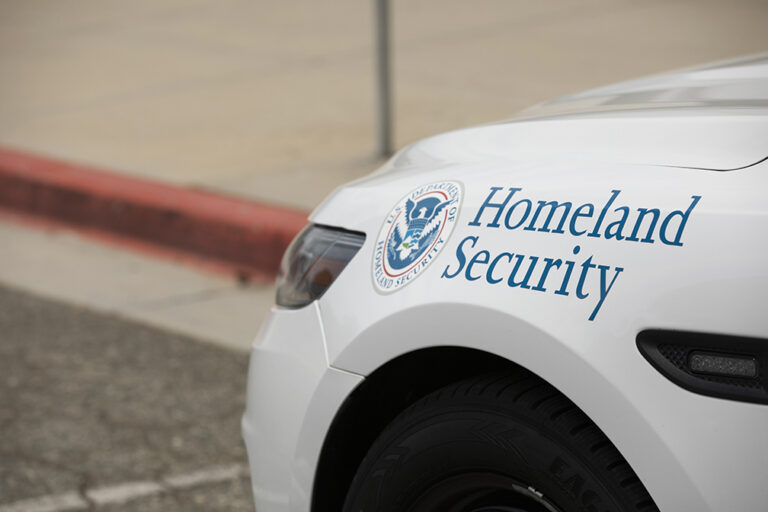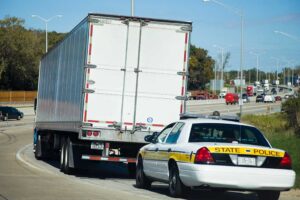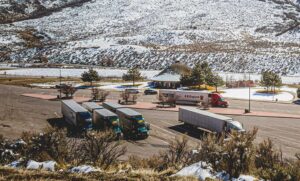Brad Klepper is busy helping drivers with legal problems this week. We hope you enjoy this “rerun” from the Oct. 1, 2020, edition of The Trucker.
As those of you who read my columns in The Trucker already know, the answer to almost every question you will ask a lawyer is — wait for it — “it depends.” In fact, I think I took “It depends 1” and “It depends too” (see what I did there) as part of my core curriculum in law school.
The point I am trying to make here is that the law is nuanced, and there are very few bright-line rules.
This was really brought home to me recently in a conversation with my wife. We were watching the news, which was showing a video of the Department of Homeland Security (DHS) forces in the city of Portland, Oregon.
My wife asked me what seems to be a pretty straightforward question: “Can the federal government use federal forces in cities?” I took a deep breath, slowly poured myself a drink, and then responded (you guess it), “It depends.” My wife, fully expecting this answer, poured herself a glass of wine and got comfortable as she prepared for my long-winded explanation. (This was clearly not her first rodeo.)
I took another deep breath and began:
In establishing the federal government with limited powers, the founding fathers did not include a general federal police power in the U.S. Constitution. That power is reserved to the states under the 10th Amendment.
However, under certain situations, federal law gives the federal government the right to send in federal forces. Specifically, this can occur to: (i) protect federal property, (ii) ensure that federal law is upheld and (iii) enforce federal court orders. It also allows the U.S. Department of Justice (DOJ) to monitor compliance with federal voting-rights laws, such as fraud and voter intimidation. For those of you keeping score at home, this should not come as a surprise.
Federal forces were used to intervene in the railroad strikes of 1877 and 1894. Remember those? Me either.
Federal forces were also used to enforce federal judges’ desegregation orders in the 1950s. Moreover, federal forces were used to assist local police with riots following the assassination of Dr. Martin Luther King in 1968.
More recently, federal forces were used to help police control the riots following the acquittal of several police officers for the beating of Rodney King.
This brings us back to the news, and the video my wife and I were watching. In this scenario, DHS said the use of federal forces was necessary to protect the federal courthouse. Not everyone liked this use of federal forces. In fact, a lawsuit was filed by the Oregon Attorney General to limit the federal forces activity. This was denied by a federal judge, although several other lawsuits remain related to alleged unconstitutional activity by the forces.
“OK,” my wife said, “but what about having federal forces at polling placed during an election? President Trump suggested there would be strong federal presence at polling places in November. He said there would be sheriffs, law enforcement and hopefully U.S. Attorneys. What about that?”
That, as they say, is a different matter.
Through the elections clause, the U.S. Constitution grants power to individual states to determine the “time, place and manner” of federal elections. Even though Congress sets the date of federal elections, its other federal powers are limited. The DOJ can monitor compliance with federal voting laws and fraud and intimidation, but that is about it.
Federal law prohibits any military or federal civil police from ordering “any troops of armed men at any place where a general or special election is held, unless such force is necessary to repel armed enemies of the United States.” Violation of this law carries a fine and up to five years in jail.
In other words, the president can’t order federal troops of civil police to monitor polling locations; it falls to the states to determine how, and if, polling places are monitored. Of course, state and local laws addressing this issue are all over the board.
For example, Pennsylvania police are required to remain at least 100 feet from a polling place unless summoned. New York City, on the other hand, requires that at least one police officer be assigned to each polling location. These laws regulate the use of state or local law enforcement. Federal forces are not allowed (absent very limited circumstances).
So, to summarize, the government’s executive branch has no authority to order federal forces to provide security for beyond legal monitoring by the DOJ. Any violation of this would subject the official to federal and state criminal penalties.
After I said all of this, my wife finished her glass of wine, looked me in the eye and said, “Remind me to quit asking you legal questions.”
Brad Klepper is president of Interstate Trucker Ltd. and is also president of Driver’s Legal Plan, which allows member drivers access to services at discounted rates. For more information, contact him at 800-333-DRIVE (3748) or interstatetrucker.com and driverslegalplan.com.
Brad Klepper is a regular contributor to The Trucker, providing valuable insights for drivers and motor carriers. He serves as president of Drivers Legal Plan, a national law firm offering discounted CDL ticket defense to members, and Interstate Trucker, a law firm providing CDL defense with no monthly fees.








